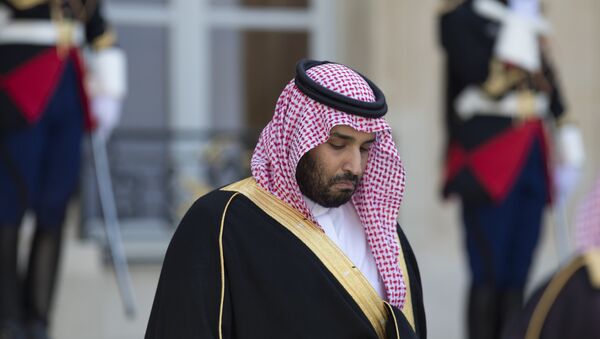In a report looking into the finances of Daesh, the foreign affairs select committee raised questions over Saudi and Gulf state efforts aimed at preventing money from getting into the hands of the jihadist group.
Read our #ISILFinances report: https://t.co/oIS2OcvlJg #ISIL pic.twitter.com/bsULDfqNcU
— Foreign Affairs Ctte (@CommonsForeign) July 12, 2016
Noting that most of Daesh's money comes from revenue-generating actions such as selling oil, "gangsterism and protection rackets," the report specifically looked at the issue of donations being given to the group.
Oil is the largest source of funding for Daesh, with estimates of £23m from sales despite aerial attacks on going pic.twitter.com/pMhr1FNkVS
— Hazim Bidiwi (@Hazim_Bidiwi) July 12, 2016
Reporting on UK Ministry of Defense (MoD) evidence presented to the inquiry, the report said "there is historical evidence of instances of financial donations to Daesh from within Gulf States," adding that "it is understood that family donations are being made to Daesh, through the unregulated Alternative Value Transfer Systems."
Expressing frustration at the lack of pace at which some Gulf States had tried to crackdown on Daesh funding, the report highlighted that Saudi Arabia had waited until March 2015 to make it illegal for Saudi residents to provide support for Daesh.
While losing territory in #Iraq, #daesh has lost around 50% of its oil revenue, thanks to airstrikes & financial counter measures. #ISIS
— John Rendon (@JohnWRendon) May 14, 2016
Alternatively, the UK had designated Daesh as a terrorist organization as early as June 2014.
Questions Raised Over Royal Links
There has also been long held suspicions that figures close to ruling families in Gulf states had been donating money to Daesh.
Addressing these claims, UK Foreign Office Minister Tobias Ellwood said:
"It is very opaque, it has to be said. When somebody who is close to the top of a royal family is a very rich individual donor and chooses to do so, that is very likely to happen."
"The Saudi royal family is terrified that the jihadist fervor inflaming the region will catch fire at home & threaten its control" 1/2
— Laura Rozen (@lrozen) July 11, 2016
Senior Foreign Office civil servant Dan Chugg added that it was often difficult to ascertain information on the finances of certain governments and royal families.
"It is difficult with some of these countries to know exactly what is Government funding and what is not when you are dealing with royal families, wealthy princes and those kind of things… Our strategy was not to try to ascertain whose problem and whose fault it was, but to stop the funding going to Daesh. That was what was important. And that is what our efforts have been focused on."
Erdoğan says "we must commit to defeating ISIS" — & all along it has been Turkey that has been arming, supplying, and funding Daesh in Syria
— Doloroso (@Pynnha108) May 23, 2016
Chugg also addressed speculation that some countries in the region were turning "a blind eye" to the funding of the terror group.
"There were allegations that Gulf countries were turning a blind eye, at the very least, to what was happening… allegations that Saudi, Qatar and Turkey were involved in funding Daesh in some ways… I am not aware of hard evidence that those countries were funding Daesh, but there was a lot of speculation that those countries were not playing a terribly helpful role."
'UK Should Ask Hard Questions'
While acknowledging there was no evidence that any state in the Middle East was providing money to Daesh "as a matter of policy," the committee said "the UK should be able to ask hard questions" in trying to suffocate the group's revenue.
The report comes as a sharp rebuke to a number of Middle Eastern states in their efforts to defeat Daesh, while it also places more pressure on the UK to take stronger action and pressure Gulf allies into stronger action.
The UK government has been heavily criticized for failing to publicly condemn alleged human rights violations and breaches of international law committed by Saudi Arabia through its justice system and during the Saudi-led military offensive in Yemen.


